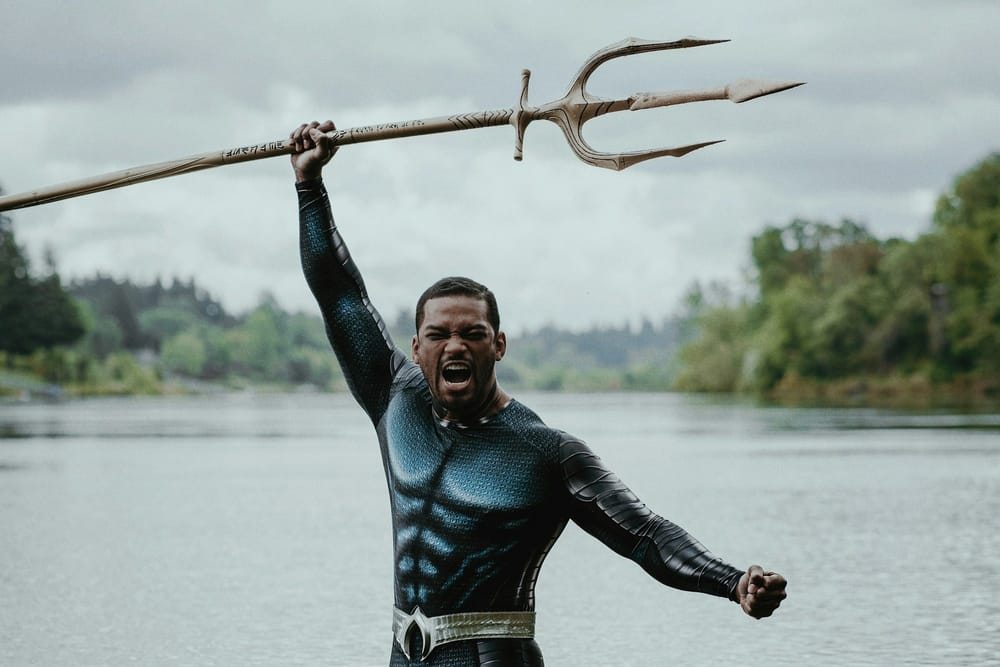Every American boy has, at one time, imagined himself as the hero of his story. The one who scores the winning touchdown. The soldier who leads the charge to victory. The sleuth whose insight breaks the case and solves the mystery. Most media targeting boys have carried this format in plot development.
This priming action is why comic books are so popular with American guys. The villains are clear-cut with their evil plans. Their motives are typically depicted as selfish in a shallow way with a conviction that cannot be swayed. The heroes are filled with righteous justice borne of selfless sacrifice and noble intentions. In Marvel universe origin stories, the heroes’ personal trauma that karma inflicted upon them due to one significant, self-indulgent misstep shapes their devotion to duty. Thus, every subsequent decision they make plays off this traumatic moment to maintain their heroic status. In the DC universe, the hero tends to be a Boy Scout personality with very few if any faults. This has been the “hero formula” at work for decades.
This literature draws impressionable boys like moths to a flame. Since boys naturally like to role-play these stories, the biggest argument that could arise is often who’d play the villain. In the end, that villain has to lose the battle, so few kids would want to play that role without the caveat that the role would flip-flop during another round of battles.
To ensure that the villain loses, part of the formulaic plot is that the villain is rarely more powerful than the hero. Kids intuitively learn this rule as they read serial issues that depict conflicts with various members of the hero’s rogue gallery. Thanos doesn’t bother challenging Daredevil because the writers know that would not be a fair fight or a long one. Fans become saturated with this hero dynamic as it plays out issue after thrilling issue.
A final note regarding these heroes is that the main character rarely if ever accomplishes an achievement in their personal lives. Despite them being the most noble, eligible single individual in their narrative, they constantly keep fulfillment at bay regarding relationships. The star of the series is the person in the spandex outfit, so the alter ego is often reserved and challenging to get to know well. For aspiring hero fans, this aspect is a major one that they desire to conquer in real life.
These unwritten rules follow many naive fans into the real world as they grow into adulthood. Youths with a well-balanced childhood that is fed tales of episodic heroism take up the mantle of nobility in their lives that is meant to portray heroism in spaces they frequent. Making smart decisions to avoid the traumatic event that defines their favorite hero is an important goal, though this may, in effect, void the impact of the goal itself.
Predictably, this mindset can cause problems in adult relationships because people don’t conduct themselves like comic book characters with static, consistent rules. Individuals are complex and often can be both the hero and villain in their narrative. A fanboy may miss opportunities for vibrant networking due to his level of emotional intelligence which may not be strong due to the “hero” model. Understanding and properly responding to the perspective of another person requires skills that are high in emotional intelligence. In some ways, having these skills is like being a good poker player:
“You gotta know when to hold ‘em,
know when to fold ‘em,
know when to walk away,
know when to run…”
— from “The Gambler"
In this song, you can see how the gambler reads the other players in relation to his hand to determine the best winning outcome in that circumstance. Sometimes, you have to lose the battle to win the war. Other times, you can run the table to collect the treasure. This is all contingent on the player’s skill at relating to others within the context of a game.
Navigating life using emotional intelligence skills enhances the outcomes of interactions for everyone involved. This dynamic is diametric to what’s presented in entertainment dramas such as comic books. People are drawn to fictional dramas because the characters are clearly defined and operate in predictable manners.
Life is often anything but predictable. Take, for example, these real-life scenarios:
- Although integrity and honor are valued in society, other forces such as greed and caste pressures can influence people to act in unflattering ways.
- People can be persuaded by fear to vote for policies that work against their interests.
- People often disparage “Obamacare" while praising the benefits of the Affordable Care Act, not realizing that this is the same thing.
Considering the complexity of these situations, no wonder people are drawn to the escapism of entertainment. These examples may even challenge the gambler’s emotional intelligence skills. Still, knowing how to accept one’s own emotions as well as properly interpret the emotional state of others transforms one from an insular fanboy into a true heroic humanitarian.
This post originally appeared on Medium and is edited and republished with author's permission. Read more of William Spivey's work on Medium. And if you dig his words, buy the man a coffee.
